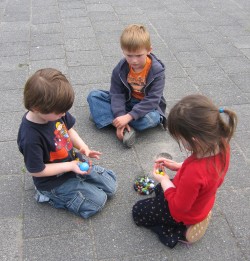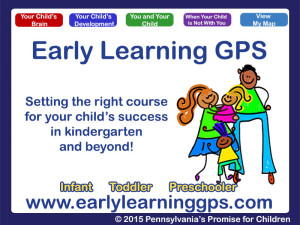What is Social Emotional Development?
 Social emotional development refers to how a child experiences their emotions and manages them. It includes factors such as their ability to create positive and rewarding relationships with others and develop how they express themselves. Babies start to know their world and their place in it by the way they relate to others. Relationships give them the loving comfort they need to feel protected and encouraged. Babies also get help dealing with difficult times through these relations. Young children develop social emotional skills through communicating with others. They develop trust, empathy, and compassion when they feel cared for and loved. Children also learn more awareness and how to be kind. Their ability to feel and manage their emotions develops when they learn social emotional skills. Children also form trusted relationships. They are able to explore with their families, community and within their culture. (Adapted from Zero to Three).
Social emotional development refers to how a child experiences their emotions and manages them. It includes factors such as their ability to create positive and rewarding relationships with others and develop how they express themselves. Babies start to know their world and their place in it by the way they relate to others. Relationships give them the loving comfort they need to feel protected and encouraged. Babies also get help dealing with difficult times through these relations. Young children develop social emotional skills through communicating with others. They develop trust, empathy, and compassion when they feel cared for and loved. Children also learn more awareness and how to be kind. Their ability to feel and manage their emotions develops when they learn social emotional skills. Children also form trusted relationships. They are able to explore with their families, community and within their culture. (Adapted from Zero to Three).
Childhood Traumatic Stress
When children are young, they depend fully on their parents and/or caregivers for survival and protection. This reliance is both physical and emotional. When the parent/caregiver experiences trauma, the relationship between them and their child may be changed. Children may go through stress that could be too much for them to handle without support and trust from their parent/caregiver to help them manage their emotions. Children may be left with a lower ability to effectively communicate what they feel or need as a result. Young children could be at a high risk of trauma if they have a hard time emotionally attaching to or relating with others. Children’s quickly developing brains are very sensitive, so their development of complex brain functions can be negatively affected. This can include their memory, attention, perceptual awareness, thinking, language, and consciousness. Their IQ and ability to control their emotions may also be involved. They can have more fears and may not feel as safe or protected. In turn, children develop symptoms that parents/caregivers won’t understand through atypical behaviors, and adults may not know how to respond to these behaviors. (Adapted from The National Child Traumatic Stress Network).
An Ongoing Process
Social Emotional Learning can be difficult because it is not something that children develop on their own. This has to be modeled and taught by parents and professionals from infancy through their teenage years. For more information and research on how to foster social emotional skills, click on the links below:
Center on the Social and Emotional Foundations for Early Learning (CSEFEL)
Head Start Center for Inclusion
The National Center for Pyramid Model Innovations (NCPMI)




